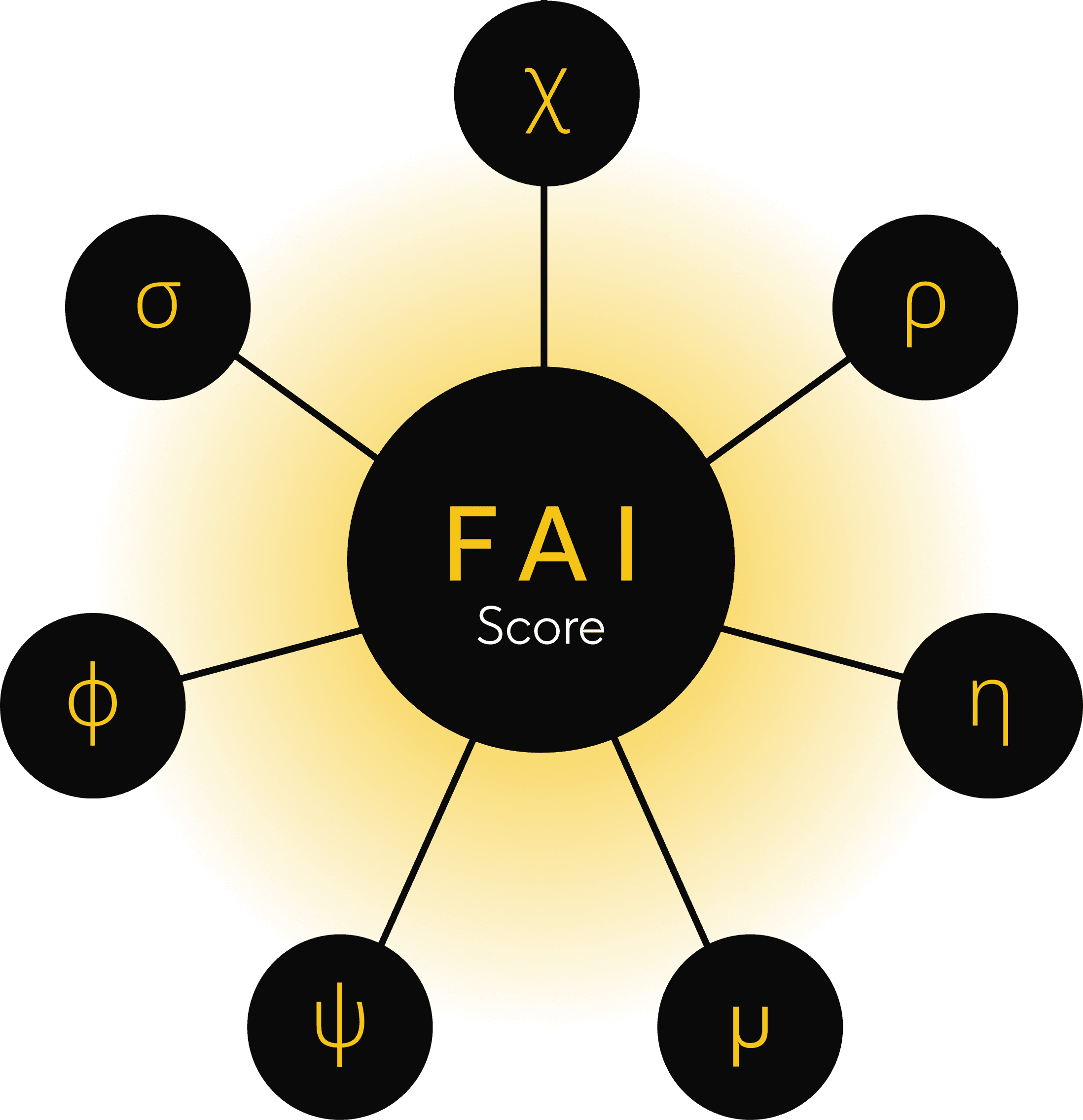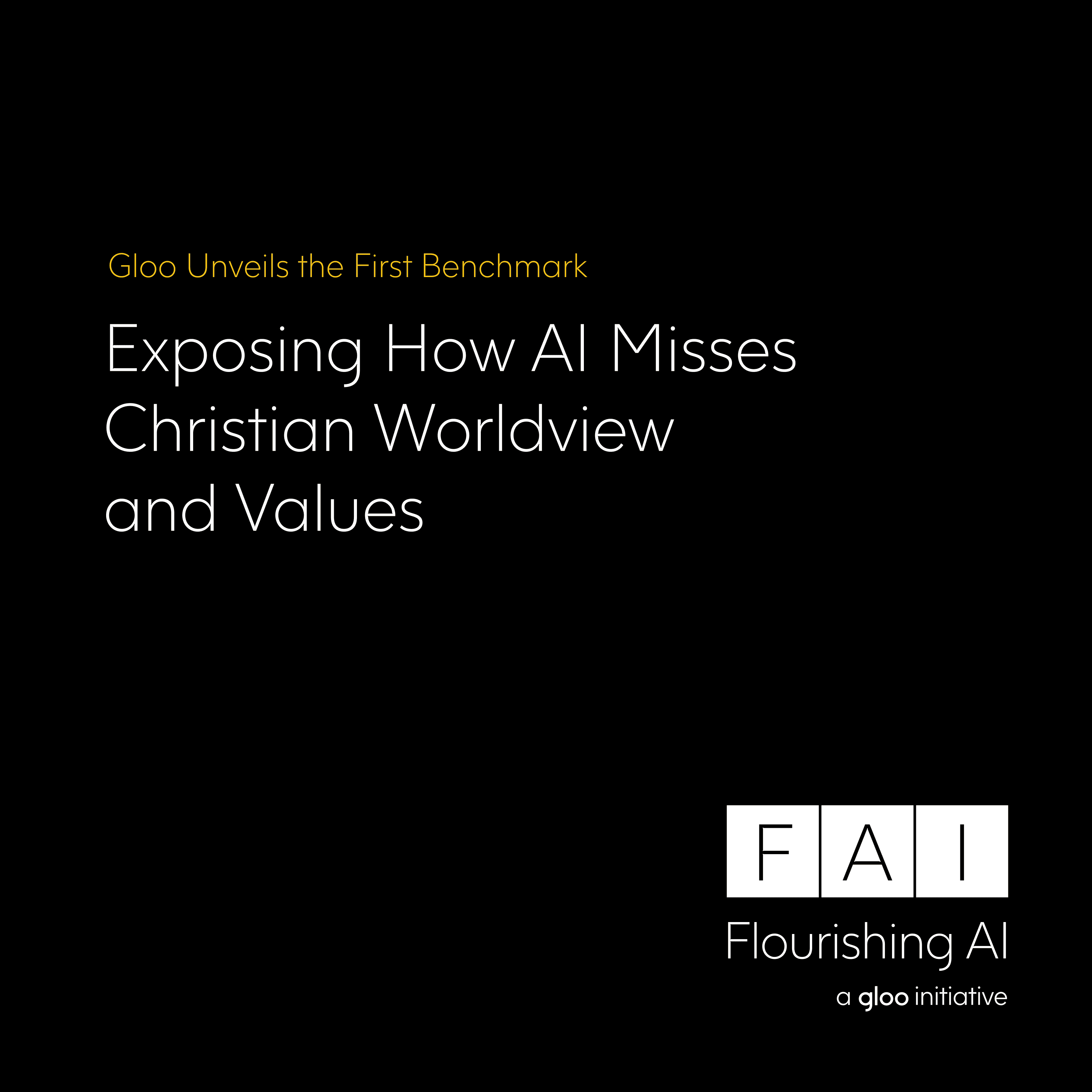Not All AI is Created Equal
The Flourishing AI Initiative (FAI) introduces a new, human-centered methodology for evaluating artificial intelligence. Instead of focusing on capabilities like reasoning accuracy, task completion or safety compliance, FAI evaluates how an AI model’s responses help people flourish.
χ
η
ρ
μ
ψ
φ
σ
A Focus on Flourishing
FAI-General
Focus
It provides an essential foundation for measuring broad well-being and applies to all users and all contexts.
Key Findings
Scores from November 2025 ranged from mid 60s to mid 80s among the tested models, with none achieving the 90-point flourishing threshold score across all seven dimensions.
Target Audience
All users and contexts.
Initial Results
None of the 28 models tested reached the 90-point threshold.
FAI-Christian
New
Focus
As AI increasingly mediates moral reflection and decision-making, FAI-C integrates a distinctly Christian worldview into the assessment of flourishing.
Key Findings
Scores from December 2025 ranged from low 50s to high 70s. FAI-C scores were significantly worse than FAI-G across all frontier models that were tested.
Target Audience
The Faith Ecosystem: churches, developers, ethicists, and every user seeking Christian-worldview-aligned guidance.
Initial Results
None of the 20 models tested reached the 90-point threshold.
Latest News & Research
The FAI Benchmarks highlight a critical gap in current AI Systems:








